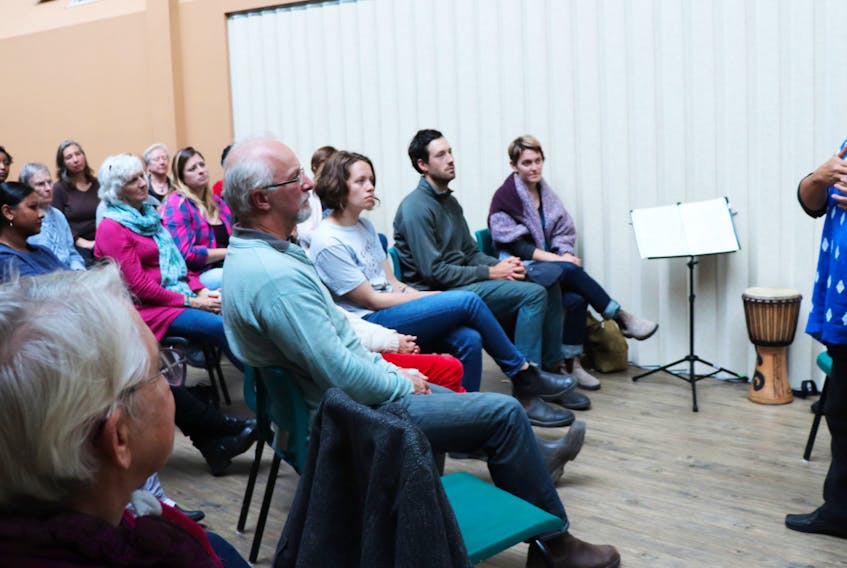ANTIGONISH, N.S. - Guatemalan congresswoman Sandra Moran has lived an incredible life of advocacy; on behalf of minorities, social justice and for a better legal system, in her home country.
Moran spoke about those subjects while in Antigonish late last month as part of a Maritimes tour, sponsored by the Maritimes-Guatemala Breaking the Silence Network. Moran’s presentation, which included sharing a short documentary about her life titled In My Own Voice, took place at the Royal Canadian Legion- CACL location on St. Ninian Street.
The first feminist and openly gay member of congress in Guatemala, Moran is also an accomplished musician, who visited the Maritimes as a drummer and singer with the political music group Kin Lalat 30 years ago.
In talking to the Casket just prior to her evening speech, Moran noted this region has been “very committed in solidarity with the Guatemalan people since the 1980s.”
Moran summarized her tour speech.
“My battles working in the parliament and my experiences because, I feel, every country is looking for some ways to do it - representative democracy - better,” she said, noting Canada being amongst those countries, a nod to the voting-reform talk which was prominent during the last federal election.
Moran noted the In My Own Voice documentary was made in the last year.
“It goes through the history of Guatemala, through my experience,” she said. “I started when I was 14 years old being part of the social movement and now I’m in the congress and I’m 58. And I have experiences in different ways. I was a refugee in Canada; I came here in the 1980s, in Vancouver, and I went back and continued working in Guatemala.”
That continued work includes battling against the corruption in the highest levels of government. Moran noted there has progress in that fight.
“In 2015, thousands of people went to the streets because the attorney general revealed these networks of corruption in the government,” she said.
“And from those, from the pressure of citizens on the street, legal actions were taken and the vice president resigned and the president resigned. The demonstrations started in April and she resigned in May and he resigned in September. And between 2015 and now, we have more than 600 people in jail from the last government and the one before. We’re making change in the legal system that is working, finally, because, for citizens, there is always a frustration that the legal system doesn’t work … but in this way, it’s working.”
Moran noted she is part of a small group of parliamentarians who continue the battle to purge corruption out of government and with those forced out; her group becomes stronger and, on another positive note, opened the door for more women in congress.
“Amongst us, we were 19 women in the parliament in 2016, now we’re 21 because some others were jailed,” she said. “The women numbers went up because they were number two on the list [of succession].”
Moran noted the tentacles of the government’s corruption reached to the courts and to business leaders, adding there is always two sides – those perpetrating and those allowing it to happen.
And when dealing with so much abuse of power, Moran noted the only way to combat it is for citizens to say enough is enough.
“One piece that is very strong is people – the citizens,” she said.
“If people don’t organize themselves and show that they are tired of the corruption, nothing changes; a big piece is that.”
She talked about the role social media played as the guilty government officials and businesses put pressure on traditional media, sources such as newspapers, by targeting their advertisers.
“Social media is a big chunk of that,” she said
“The first demonstration in 2015 was five young people who called for the demonstration by social media. Five of them and there were 25,000 on the streets; ‘we don’t want anymore, we’re tired of that, we need to demonstrate against that, let’s get together’ … there was a call. They [the five who started the social media call-out] showed their feelings, which everyone had, but they made to call to do it.”









